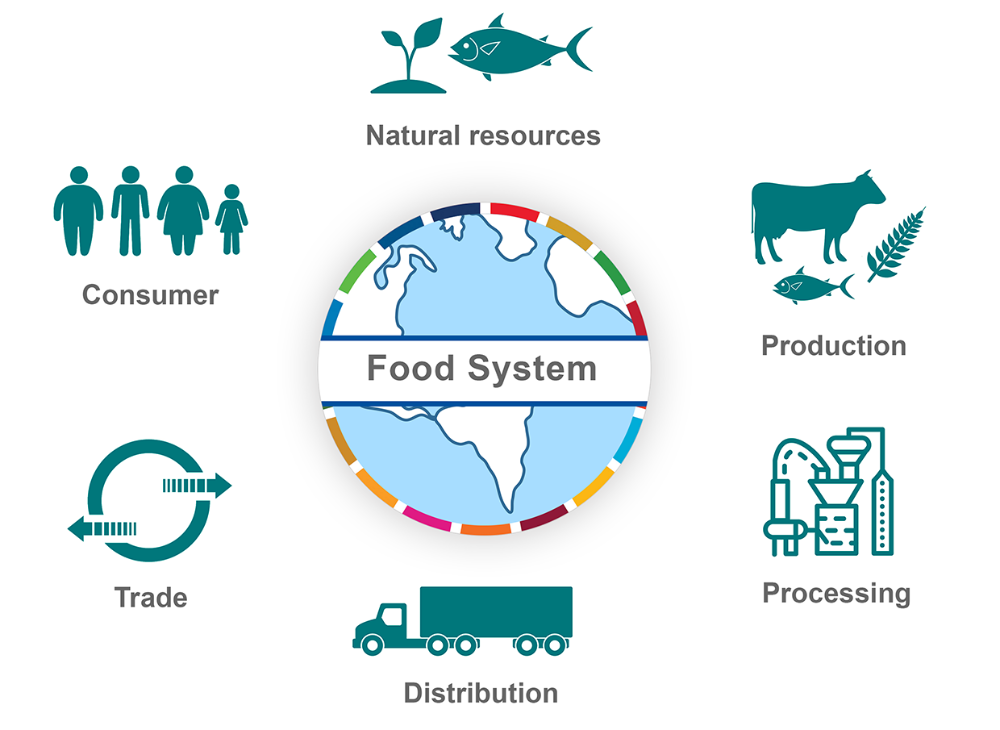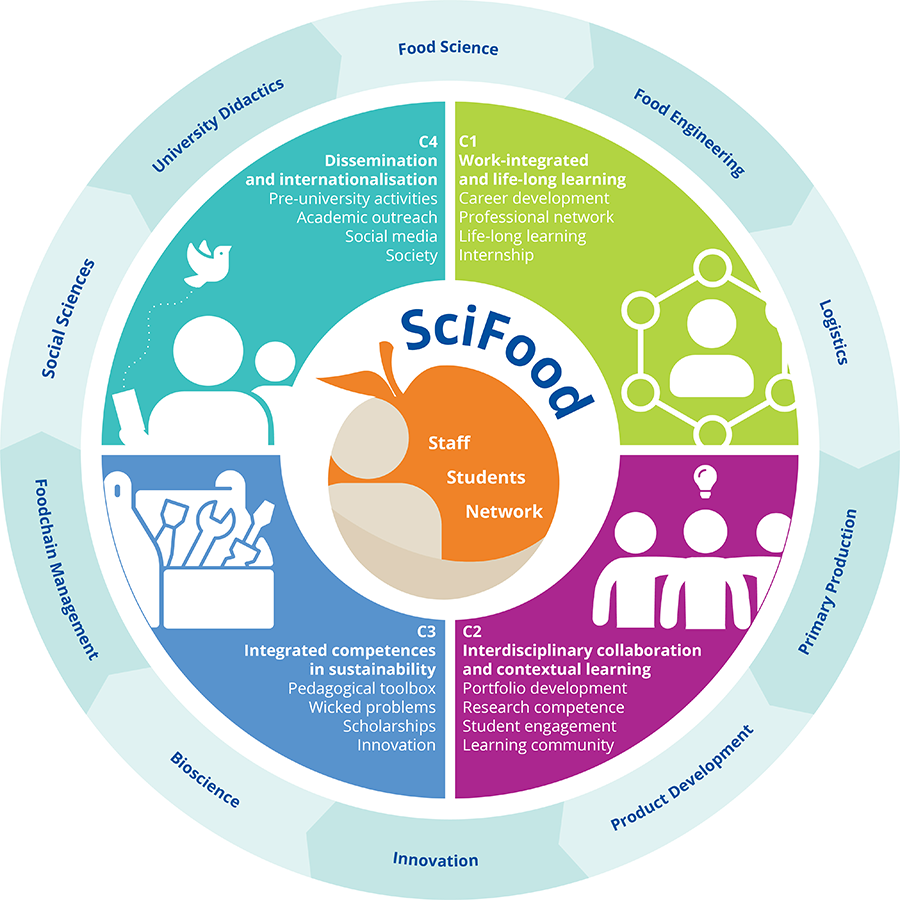SciFood - Utviklingsprosjekter ved Fakultet for naturvitenskap
SciFood - Centre of Excellence in sustainable food system education

Food production has a significant impact on our planet and a joint effort in education, research, and innovation is needed to secure a sustainable food system, combining environmental, social, and economic dimensions, to feed future populations. A food system comprises all processes involved in providing food (Figure 1). Thus, food system education comprises a broad range of disciplines. However, to create a sustainable and resilient food system for the future, university graduates with knowledge beyond disciplinary boundaries and a critical and creative thinking mindset are required. SciFood addresses an emerging need for a pedagogical framework and a toolbox on how to teach sustainability and wicked problems of high quality by developing interdisciplinary collaborative learning initiatives across more than 25 study programmes.

SciFood will realise its vision through four activity Clusters
(See Figure 2)
C1) Work-integrated- and lifelong learning
Aim: To establish systematic collaboration between universities and the stakeholders to equip students and employees with knowledge, skills and experience through work-integrated studies and lifelong learning.
C2) Interdisciplinary collaboration and contextual learning
Aim: To establish interdisciplinarity and contextual learning as a pedagogical principle for study program and course development.
C3) Integrated competence in sustainability
Aim: To establish a solid and systematic foundation to equip candidates with integrated competencies in sustainability thinking and -innovation processes. Develop a course targeting actors in the food industry/food system (EVU).
C4) Dissemination and internationalisation
Aim: To actively disseminate project research and activities to a broad audience
The Centre will strengthen food system education by establishing an open learning community for the co-creation of knowledge with regional, national, and international actors. SciFood offers a unique opportunity to strengthen lifelong learning and distributed education as requested by society. SciFood will provide the framework and resources to develop, monitor and evaluate a systematic change in food system education, and share new educational practices with academia and society, nationally and internationally.
Partners
SciFood is hosted by the Department of Biotechnology and Food Science (IBT) at NTNU. NTNU is the leading natural science and technology university in Norway and coordinates a comprehensive multidisciplinary society of food experts, the NTNU Food Forum. The SciFood consortium, and its networks, hold extensive expertise and comprises interdisciplinary cross campus panels (covering ˃ 25 study programs at BSc and MSc level within key areas) at four faculties (the Faculty of Natural Sciences, the Faculty of Engineering, the Faculty of Economics and Management, and the Faculty of Social and Educational Sciences) at NTNU and the Faculty of Biosciences and Aquaculture (FBA) at Nord University.
A collaboration agreement between NHO and NTNU strengthens cooperation on work-life relevance, lifelong learning, and capacity building for future development. Thus, SciFood is a unique opportunity to develop further interdisciplinary courses to meet societal needs. The strong connections with relevant research institutes (e.g., SINTEF, Nofima, Institute of Marine Research, NIBIO, Ruralis), industry partners (˃100 internship agreements) and other stakeholders within the consortium foster collaborative development in learning and work-life. As a whole, our project portfolio in education and research is highly interconnected and is the fundament for our research-based education.
A particular focus area for pedagogical development within SciFood will be to involve students as partners, both formally in terms of student representatives in the SciFood organisation, but more importantly to engage the entire group of students in collaborating with faculty staff towards developing the next pedagogical practices.
Partners at NTNU
- Department of Materials Science and Engineering (IMA)
- Department of Biological Sciences (IBA)
- Department of Physics (IFY)
- Department of Mechanical and Industrial Engineering (MTP)
- Department of Energy and Process Engineering (EPT)
- Department of International Business (IIF)
- Department of Sociology and Political Science (ISS).
Collaborators and support
The Center is supported by the Center for Science and Engineering Education Development (SEED). The consortium has strong connections with many stakeholders and collaborates nationally and internationally on education and research.
